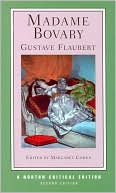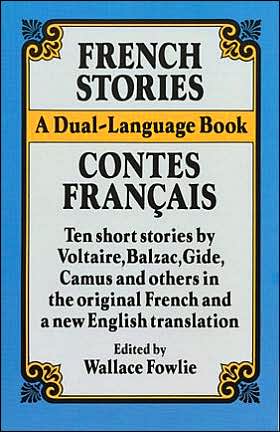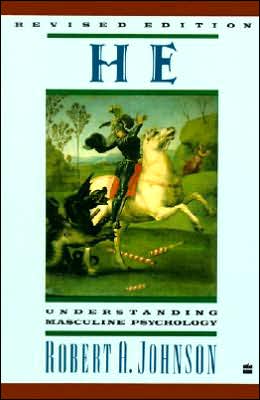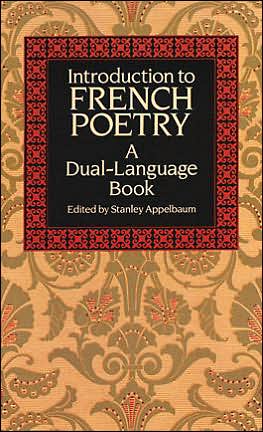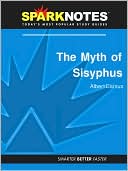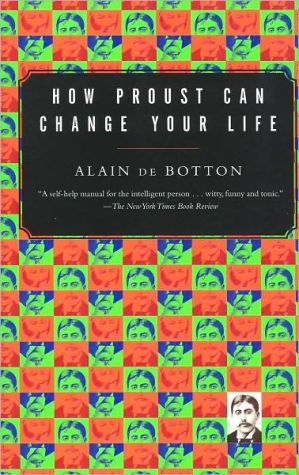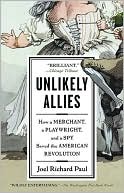Jean-Paul Sartre and the Jewish Question: Anti-Antisemitism and the Politics of the French Intellectual
Jean-Paul Sartre and the Jewish Question examines the image of “the Jew” in Sartre’s work to rethink not only his oeuvre but also the role of the intellectual in France and the politics and ethics of existentialism. It explores more broadly how French identity is defined through the abstraction and allegorization of “the Jew” and examines the role anti-antisemitic intellectuals play in this process. Jonathan Judaken reconsiders the origins of the intellectual in France in the context of...
Search in google:
Jean-Paul Sartre and the Jewish Question examines the image of “the Jew” in Sartre’s work to rethink not only his oeuvre but also the role of the intellectual in France and the politics and ethics of existentialism. It explores more broadly how French identity is defined through the abstraction and allegorization of “the Jew” and examines the role anti-antisemitic intellectuals play in this process. Jonathan Judaken reconsiders the origins of the intellectual in France in the context of the Dreyfus affair and Sartre’s interventions in the parallel Franco-French conflicts in the 1930s and during the Vichy regime. He considers what it was possible to say on behalf of Jews and Judaism during the German occupation, Sartre’s contribution after the war to the Vichy syndrome, his positions on the Arab-Israeli conflict, and the ways Sartre’s reflections on the Jewish Question served as a template for his shift toward Marxism, his resistance to colonialism, and for the defining of debates about Jews and Judaism in postwar France by both Jewish and non-Jewish intellectuals. Judaken analyzes the texts that Sartre devoted to these issues and argues that “the Jew” constituted a foil Sartre consistently referenced in reflecting on politics in general and on the role of the intellectual in particular.Holocaust and Genocide Studies“In [Judaken’s] refusal to relegate Sartre to the ivory tower, and in his undisguised admiration for his courage to live out the messy ambiguities of his constantly evolving project, Judaken provides an essential portrait of the man who practiced the engagement that he preached.”
Jean-Paul Sartre and the Jewish Question\ Anti-antisemitism and the Politics of the French Intellectual \ \ By Jonathan Judaken \ University of Nebraska Press\ Copyright © 2006 University of Nebraska Press\ All right reserved.\ \ \ \ Introduction\ French Intellectuals and the Jewish Question \ Will it be necessary to write in the dictionaries of the year 2000: "Intellectual: noun, masculine, category social and cultural, born in Paris at the moment of the Dreyfus affair, died in Paris at the end of the twentieth century, unable to survive the decline of the universal"? Bernard-Henri Lévy\ The funeral march began at two PM Saturday, April 19, 1980. Twenty thousand people gathered outside Broussais hospital to follow the processional as it wound past the areas of Paris that Sartre haunted. Moving solemnly through the streets, the crowd gathered the young and old, foreign and French, swelling into a cacophonous demonstration of fifty thousand. The throng walked the two-mile route surrounding the hearse with Sartre's "family," followed by a car from Les Temps Modernes, another from Éditions Gallimard, a third from L'Amicales des Algériens en Europe, one more from Libération. They moved from the fourteenth arrondissement past the cafés, the restaurants, the clubs, and the brasseries in Saint-Germain that Sartre had frequented. When the cortege passed La Coupole, the waiters came outside to bow. The stream moved into thecemetery in Montparnasse, now decorated with red flags and black flags, with some people standing atop tombstones and cheering.\ The funeral reunited intellectuals of the postwar Left from several generations: those from the Resistance stood alongside those who resisted the war in Algeria, comrades and fellow travelers from the French Communist Party (Parti communiste français, PCF) mixed with New Leftists and Maoists. The surge was so intense that a human chain wound around Simone de Beauvoir and Arlette Elkaïm-Sartre, Sartre's adopted Jewish daughter, to protect them. There was no service, there were no speeches. After the coffin was lowered into the grave Beauvoir sat at its edge for more than ten minutes, enveloped by the multitude.\ In the press a deluge of testimonials bore witness to Sartre's significance. Serge July in Libération spoke of "this huge personality" who "occupied this century the way Voltaire and Hugo occupied theirs." Le Figaro hailed Sartre as the "last master of French thought." Le Monde dedicated eight pages to "the passionate history of a committed intellectual." The weeklies-L'Express, Le Nouvel Observateur, Le Point, Les Nouvelles Littéraires-printed a slew of tributes by prominent intellectuals, and their covers were blazoned with Sartre's image. Libération and Le Matin published special issues dedicated to Sartre; each sold over a hundred thousand copies. Bernard Pivot canceled his scheduled program for the television show Apostrophes to broadcast a "Sartre Special." The outpouring spilled beyond France's borders, attesting to Sartre's international acclaim. "The only discordant note in this chorus of praise came from a few Arab countries: 'It is my opinion,' the Palestinian political scientist Nafez Nazzal declared, 'that his allegiance to Israel overrode all other concerns.'" Nazzal's allegation was not so bizarre placed in the context of the last days of Sartre's life.\ For Sartre died as he had lived, in controversy. Just before he entered the hospital with a pulmonary edema, his dialogues with Benny Lévy were published in Le Nouvel Observateur, causing a scandal in the French press. In conversation with Lévy, the young leader of the Gauche prolétarienne (the French Maoists) who had served as Sartre's secretary and friend since the onset of his blindness in the fall of 1973, Sartre made, for an avowed Marxist activist and lifelong atheist, seemingly outrageous claims, saying, for example,\ one would have had to conceive of history differently if one wanted to say that there is a Jewish history[,] ... [and] obviously there is a Jewish history. ... There is also another theme I like: the Jewish dead[,] ... they will be reborn as living beings in this new world. This new world is the end [and interests me] precisely because it possesses no Marxist element.... [I]t's the beginning of the existence of men who live for each other. In other words, it's an ethical end.... [M]essianism is an important thing that Jews have conceived of alone but that could be used by non-Jews for other purposes[,] ... [a model of ] doing away with the present society and replacing it with a juster society.\ Sartre at seventy-five was beginning afresh. In dialogue with Lévy he was rethinking fundamental aspects of his thought: his conception of consciousness, Marxism as the key to philosophy in our time, the role of the intellectual, writing as a form of praxis, his theory of history, and his understanding of Jews and Judaism.\ If Sartre's interview with Lévy was sensational because it marked a new point of departure in the author's life and thought, then the scandal of my study is to claim that his last published words should come as no surprise, since every time he fundamentally rethought the underlying principles that defined his politics and his role as a public intellectual, Sartre did so by reflecting on "the Jewish Question." His interventions on behalf of Jews and Judaism were intermittent and seemingly peripheral to the central political issues of his life: his critique of bourgeois values, the rise of fascism, the Nazi occupation, the cold war and communism, decolonization, the student movements, and the problems of the Third World. However, at each defining moment of his intellectual agenda Sartre turned to the image of "the Jew" to either clarify, reassess, or redefine his ideas. His response to the Jewish Question helped determine his approach to other concerns and was part of the reason that his ideas resonated so deeply in French political culture. While he spilled much more ink on other topics, his representations of Jews and Judaism as persistent figures of alterity serve as a fecund site to interrogate and reevaluate his oeuvre, especially his conception of the role of the intellectual. This claim, though startling, should also come as no surprise, since the public intellectual was born in France in the late nineteenth century and from the outset was intrinsically enmeshed in the debate on the Jewish Question. To understand Sartre's position, therefore, we must trace it back to the origins of the intellectual.\ The Birth of the Intellectual\ The concept and very word "intellectual" was introduced into every language and culture from the French intellectuel. This term was first used widely at the height of the Dreyfus affair. The case of Alfred Dreyfus, a Jewish captain and member of the General Staff who was falsely accused of treason and found guilty by a military tribunal in 1894, had deeply divided France by 1898. A transformative moment in the long campaign to exonerate Dreyfus was the open letter by the famous naturalist writer Émile Zola addressed to the president of the Republic on January 13 that appeared in Georges Clemenceau's newspaper L'Aurore under the huge front-page headline "J'accuse." The letter indicted the military with perpetuating a grave injustice against an innocent citizen and demanded a revision of the verdict in the name of truth, justice, and humanity. The next day a group of university professors, scientists, and writers published a "manifesto of the intellectuals" supporting Zola. In L'Aurore on January 23, Georges Clemenceau applauded the intellectual protestataires, whom he called "a sign" of a "movement of opinion" that comes from "all corners of the horizon grouped together by an idea" led by "resolute men who demand justice." The manifesto by those who would henceforward be termed intellectuels was the first time that the word "intellectual" had achieved "common currency" in any language. It thus "consecrated and politicized" the noun and the social actor it designated.\ The intervention by these "intellectuals" resulted in rioting in the streets and a long battle between the Dreyfusards and the anti-Dreyfusards over the soul of France. This was a Franco-French war: republicans opposed monarchists and Bonapartists, liberals and socialists stood against conservatives, secularists rejected clericalists. The Right, the military, and the Church's desire for an organic, hierarchical, Catholic, traditional social order governed by raison d'état was at odds with the Republic's recasting of the egalitarian, democratic values of the French Revolution, including fraternity, equality before the law, and individual human rights.\ For the anti-Dreyfusards responding to the manifesto, the intellectuals who signed it represented the abuse of power and language akin to the Judaization they saw threatening France. The literary critic Ferdinand Brunetière deplored the fact that "the Protestants, the freethinkers, the Freemasons, [and] the Jews" had attempted to "monopolize public functions" through "the pretense of raising the writers, the savants, the professors, the philologues to the rank of supermen." Jules Delafosse in Temps would substitute the Asiatic word "mandarin" for "intellectual," clearly according it a pejorative value. Like these other anti-Dreyfusards, Maurice Barrès's response, "La protestation des intellectuels!" published in Le Journal on February 1, 1898, picked up on Clemenceau's use of the "excellent word" to turn it against his opponents by branding them with it. For Barrès, intellectuals, like Jews, are only "pretenders," "half-cultured ... poisoned spirits" who have destroyed French instinct and substituted consciousness for it because they are "ashamed to think like the simple French." Like the Jews, for whom everything has only an exchange value, Barrès contended, "the Dreyfus syndicate" offers a bargain: "'Give me your name and I will give you the title of intellectual.'"\ Barrès's retort characterized "intellectuals" as members of a decadent, avant-garde group on the margins of society who used the esoteric, urbane, universal, Kantian language of philosophy and were thus severed from the rootedness of the French language and the true culture of la patrie (the fatherland). His article offers a typology of the protestataires based on four signatories who embody the lack of legitimacy, the corruption of the Republic, the foreignness, degradation, and degeneracy with which he associates Jews. His wrath denigrates Zola most derisively: "By his roots, [he] is not French." There is a "foreign, ... antinational, ... exotic" sensibility to Zola's writings indicative of his Venetian origins. "I will say nothing of the Jewish signatures," he concludes, because for Barrès their very Jewishness was an indictment of their endorsement and made their cosigners guilty by association.\ The invention of the public intellectual in the context of the Dreyfus affair was, therefore, from the start thoroughly interwoven with the discourse on the Jewish Question. Barrès's reply to the "manifesto of the intellectuals" associated the intellectual with decadent outsiders, with those who were urbane and universalist, déraciné (uprooted) from the purity of le peuple. He thereby attached to the image of the intellectual many of the same connotations that characterized his response to the Jewish Question. As a distillation of the anti-Dreyfusard position, Barrès's rejoinder to the Dreyfusards has strongly determined the cultural image of the intellectual ever since, fusing the destiny of the universal intellectual to the image of Jews and Judaism, especially since intellectuals embraced many of the qualities that the anti-Dreyfusards disparaged.\ In addition to the image of the intellectual, the specific social actor who came to underlie the intellectual's national role and function in France also emerged in the context of the Dreyfus affair. Christophe Charle has identified this role by mapping out its ancestors: the secular cleric (le clerc), who embraced rationality in his struggle with the priest for universal moral authority in the seventeenth century; the public critic and activist philosophe of the Enlightenment; the Romantic prophet, exemplified by Victor Hugo, who voiced the aspirations of the people; and the savant, whose expertise was put in the service of the progress of mankind. As the intellectuals qua intellectuals were born in France during the late nineteenth century, they consolidated these various roles inherited from their precursors. At the crossroads of the development of the modern, secular, republican idea of the nation, the intellectual thus emerged as what Venita Datta has termed a "national icon." What's more, as Paul Cohen has argued, this national figure is a "consecrated heretic" who incarnates a uniquely French conception of liberty, critical of the "negative" liberty of Anglo-American liberalism and its concomitant materialism and utilitarianism. French intellectuals are equally resistant to identifying liberty with the state, as in the German model of freedom. Rather, consecrated heretics define themselves in opposition to the bourgeoisie, the Church, the government, and all forms of the established order.\ Socially, then, intellectuals are consecrated heretics who self-consciously act in public with others identified as intellectuals. This group identity is formed in networks of recruitment, such as educational institutions, journals, and publishing houses. Their opinions frame the national debate through the dissemination of their ideas in the mass media. Their cries are constituted through the use of a bifurcated polemical discourse (i.e., Left vs. Right, good vs. evil, moral vs. immoral, truth vs. illusion). Intellectuals stand as witnesses of the national conscience, representatives of the nation's values, poised to speak in the name of truth against those they perceive as blocking the achievement of justice.\ Intrinsic to the role of the public intellectuals is also the notion that they speak against the dominant voices of power on behalf of the oppressed, the downtrodden, the marginalized Other by announcing their truth and demanding justice for them. Nonetheless, despite the social and cultural origins of the French intellectual, the specific ways in which the alterity of "the Jew" contributed to defining the "national icon" after the Dreyfus affair and throughout the twentieth century in France has not been sufficiently explored. That is the aim of this study, which focuses on the image of "the Jew" in Jean-Paul Sartre's life and work. But because Sartre's response to the Jewish Question took up the terms and categories of a protracted discussion in French intellectual history, it must be set against that larger backdrop.\ The Jewish Question\ The catchphrase la question juive emerged in the 1840s from the German die jüdische Frage and then die Judenfrage (the Jewish Question) as the crystallization of a series of questions whose modern formulation goes back to the eighteenth century: Should Jews be granted civil and political rights equal to those of Christian subjects and citizens? Would civic education make them more like Gentiles? Can they serve as loyal soldiers? Are the Jews a distinctive people, race, or nation? Is there an inherent dichotomy between Judaism and modernity? This set of questions was part of a broader Enlightenment debate about human nature, natural religion, natural rights, common humanity, tolerance, and regeneration. The earliest phrasing goes back to the disputes in England concerning the 1753 Bill of Naturalization, the so-called Jew Bill. The outburst of newspaper articles, songs, petitions, and visual materials included among the pamphlets one entitled Reply to the Famous Jew Question.\ (Continues...)\ \ \ \ \ Excerpted from Jean-Paul Sartre and the Jewish Question by Jonathan Judaken Copyright © 2006 by University of Nebraska Press. Excerpted by permission.\ All rights reserved. No part of this excerpt may be reproduced or reprinted without permission in writing from the publisher.\ Excerpts are provided by Dial-A-Book Inc. solely for the personal use of visitors to this web site. \ \
\ H-Net"Jonathan Judaken''s study of Jean-Paul Sartre and the Jewish Question stakes a claim to new scholarly territory. . . . This is a book that indeed scandalizes, in that it takes interpretive risks, and as promised, uncovers a "fecund site" for further discussion and debate."—Richard F. Crane, H-Net\ — Richard F. Crane\ \ \ \ \ \ Christian Delacampagne"This book is crucial for a better understanding of Sartre's thought in general. It will also be of primary interest to all those who work in the field of twentieth-century cultural history, especially to those who are interested in the problematic of the so-called "culture wars" in contemporary France. Beyond that, it will also appeal to those who try to understand why the issue of antisemitism was still a major issue in Europe after the Second World War and is still one at the beginning of the twenty-first century."—Christian Delacampagne, Professor of French, Johns Hopkins University\ \ \ Dominick LaCapra"Jonathan Judaken's book takes commentary on Sartre to a new level and simultaneously provides a thought-provoking example of what the author terms 'the cultural history of ideas,' that is, a study of thought that both attends to its conceptual complexity and situates it within a larger sociocultural and political matrix. It also offers the first investigation of Sartre that systematically takes as its guide the pivotal importance of his influential reflections on the Jewish Question."\ -Dominick LaCapra, Bowmar Professor of Humanistic Studies, Cornell University\ \ \ \ \ \ \ Robert Bernasconi"All serious readers of Sartre's Anti-Semite and Jew should read Jonathan Judaken's Jean-Paul Sartre and the Jewish Question in order to understand its place in Sartre''s oeuvre. Judaken has taken our understanding of this important text to a new level."\ -Robert Bernasconi, author of How to Read Sartre\ \ \ \ \ \ \ Times Literary Supplement"A well-developed and impressively knowledgeable study. . . . Judaken's book helps us to understand the secret of Sartre's stubborn refusal to fade into the past, by showing this ultimate insider choosing to identify with and powerfully analyse the plight of the marginalized and oppressed-Jews, blacks, homosexuals, workers, colonial peoples, and women-as did no other thinker of his century."\ — Ron Aronson, Times Literary Supplement\ \ \ \ \ \ Christian Delacampagne"This book is crucial for a better understanding of Sartre's thought in general. It will also be of primary interest to all those who work in the field of twentieth-century cultural history, especially to those who are interested in the problematic of the so-called "culture wars" in contemporary France. Beyond that, it will also appeal to those who try to understand why the issue of antisemitism was still a major issue in Europe after the Second World War and is still one at the beginning of the twenty-first century."\ -Christian Delacampagne, Professor of French, Johns Hopkins University\ \ \ \ \ \ \ Dominick LaCapra“Jonathan Judaken's book takes commentary on Sartre to a new level and simultaneously provides a thought-provoking example of what the author terms ‘the cultural history of ideas,’ that is, a study of thought that both attends to its conceptual complexity and situates it within a larger sociocultural and political matrix. It also offers the first investigation of Sartre that systematically takes as its guide the pivotal importance of his influential reflections on the Jewish Question.”—Dominick LaCapra, Bowmar Professor of Humanistic Studies, Cornell University\ \ \ \ \ Choice Magazine"Judaken brings together for the first time Sartre's thoughts, theories, and references to European Jews from his literature, philosophy, essays, and conversations. . . . This excellent commentary is a major contribution to the huge literature on this famous existentialist. . . . This book is as much about antisemitism as it is about Sartre, and will be useful to students of French intellectual history, too."\ \ \ \ \ Central Conference of American Rabbis Newsletter"A very useful book, [Jean-Paul Sartre and the Jewish Question] traces the writing of Sartre in the context of a literary life both complex and obscure, though also famous. . . . This large and large-hearted new book includes posthumous evaluations of Sartre by the many French Jewish intellectuals who followed in his wake."\ -Arnold J. Wolf, Central Conference of American Rabbis Newsletter\ \ \ \ \ \ \ Holocaust and Genocide Studies“In [Judaken’s] refusal to relegate Sartre to the ivory tower, and in his undisguised admiration for his courage to live out the messy ambiguities of his constantly evolving project, Judaken provides an essential portrait of the man who practiced the engagement that he preached.”\ \ \ \ \ \ Christian Delacampagne"This book is crucial for a better understanding of Sartre''s thought in general. It will also be of primary interest to all those who work in the field of twentieth-century cultural history, especially to those who are interested in the problematic of the so-called "culture wars" in contemporary France. Beyond that, it will also appeal to those who try to understand why the issue of antisemitism was still a major issue in Europe after the Second World War and is still one at the beginning of the twenty-first century."—Christian Delacampagne, Professor of French, Johns Hopkins University\ \ \ \ \ \ Holocaust and Genocide Studies“In [Judaken’s] refusal to relegate Sartre to the ivory tower, and in his undisguised admiration for his courage to live out the messy ambiguities of his constantly evolving project, Judaken provides an essential portrait of the man who practiced the engagement that he preached.”—Holocaust and Genocide Studies\ \ \ \ \ \ Choice Magazine“Judaken brings together for the first time Sartre’s thoughts, theories, and references to European Jews from his literature, philosophy, essays, and conversations. . . . This excellent commentary is a major contribution to the huge literature on this famous existentialist. . . . This book is as much about antisemitism as it is about Sartre, and will be useful to students of French intellectual history, too.”—Choice\ \ \ \ \ Central Conference of American Rabbis Newsletter“A very useful book, [Jean-Paul Sartre and the Jewish Question] traces the writing of Sartre in the context of a literary life both complex and obscure, though also famous. . . . This large and large-hearted new book includes posthumous evaluations of Sartre by the many French Jewish intellectuals who followed in his wake.”—Arnold J. Wolf, Central Conference of American Rabbis Newsletter\ \ \ \ \ \ Times Literary Supplement"A well-developed and impressively knowledgeable study. . . . Judaken’s book helps us to understand the secret of Sartre’s stubborn refusal to fade into the past, by showing this ultimate insider choosing to identify with and powerfully analyse the plight of the marginalized and oppressed—Jews, blacks, homosexuals, workers, colonial peoples, and women—as did no other thinker of his century."—Ron Aronson, Times Literary Supplement\ \ \ \ \ H-Net"Jonathan Judaken's study of Jean-Paul Sartre and the Jewish Question stakes a claim to new scholarly territory. . . . This is a book that indeed scandalizes, in that it takes interpretive risks, and as promised, uncovers a "fecund site" for further discussion and debate."—Richard F. Crane, H-Net\ \ \ \ \ Robert Bernasconi“All serious readers of Sartre's Anti-Semite and Jew should read Jonathan Judaken's Jean-Paul Sartre and the Jewish Question in order to understand its place in Sartre's oeuvre. Judaken has taken our understanding of this important text to a new level."—Robert Bernasconi, author of How to Read Sartre\ \


